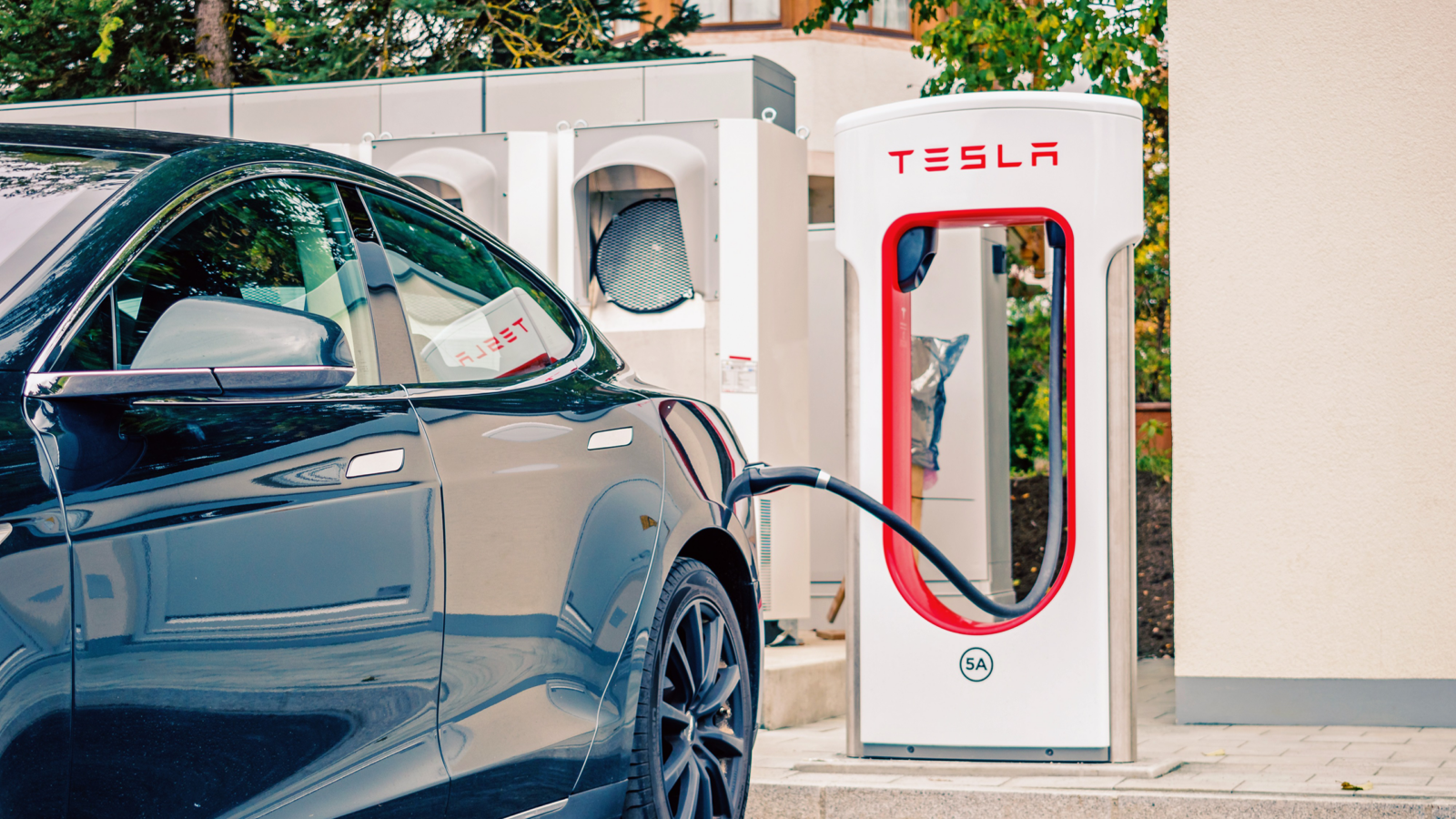Good morning and happy Friday.
It’s going to be hard to shake it off.
A slew of Taylor Swift fans in the UK have to wait a little longer to see the “Blank Space” singer live in concert as the tickets they bought turned out to be fakes. Ticket buyers — 90% of whom were 25-to-34-year-olds looking for stubs on Facebook Marketplace — were collectively scammed out of $1.2 million, Lloyds Bank reported. Many victims lost anywhere from $400 to more than $1,200, thinking they had bought legitimate seats — a cruel start to the summer indeed. But hey, if it’s any consolation, her new album comes out this week, and that’ll only set fans back about $40. It’s us. We’re the problem.
Tesla’s Stock Has Hit the Skids

Tesla is stuck in reverse.
Ahead of its earnings report next week, the preeminent EV maker saw its share price sink to a 15-month low on Thursday amid a pile-up of bad news, as multiple analysts call for a serious course correction, and production woes continue to mount. Meanwhile, Elon Musk — ever the reader-of-rooms — is fighting to secure a massive payday.
Paradise Lost
Tesla’s stock is down nearly 40% this year, due to a sizable sales dip and production slowdown. But as longtime observers know, between Tesla and Musk, there’s always something big on the horizon — especially when the company happens to be on the skids. With bad vibes abounding, Musk announced earlier this month that his ever-wandering attention has now shifted largely toward robotaxis, with a formal announcement to come in August (Musk’s announcement came shortly after claiming Reuters was “lying” when it reported Tesla would soon go all-in on robotaxis). The robotaxi hype also came just as the company settled a high-profile wrongful death lawsuit concerning the efficacy and safety of its autopilot software.
But the pivot to robotaxis is exactly that: a pivot at the expressed expense of producing the long-promised low-cost Model 2. Many investors have counted on the planned car as Tesla’s true path to EV market-share dominance. In forgoing the Model 2 for robotaxis, Tesla has invited plenty of skepticism:
- In a note Thursday, analysts at Deutsche Bank downgraded Tesla’s stock to “Hold” and cut its price target to $123 (it’s at about $150), writing, “We view Tesla’s shift as thesis-changing… with investors previously focused on Tesla’s EV volume and cost advantage potentially throwing in the towel, and eventually replaced by AI/tech investors with considerably longer time horizons.”
- Barclays analyst Dan Levy added to the choir, writing “The ‘rational’ bull case argument for Tesla is primarily based on the expectation that it will see an iPhone style consolidation of the auto market outside of China,” and noting that robotaxi’s represent a “very long-dated opportunity.”
Pay Day: All the while, Musk is still looking to persuade shareholders to re-approve his $56 billion payday. The compensation package had been blocked earlier this year when a Delaware court ruled that Musk effectively controlled the company’s board compensation committee. We’re thinking it might be a tough sell.
Cyber Crash: Meanwhile, Tesla’s Cybertruck — long an ever-on-the-horizon promise — has finally landed, if not with a thud then with a long-lasting bout of hiccups. The company has reportedly already halted deliveries for the product line amid reports that its accelerators seem, well, a touch sticky. Maybe that’s what the company means when it calls its autopilot feature “full self-driving.”
AI is About to Disrupt the Hospitality Industry, This is Your Chance to Invest

As summer travel approaches, hotels and short-term rentals scramble to find reliable staff to accommodate the demands of incoming bookings and guests. But as labor shortages continue, the $4.1T hospitality industry is slowly entering a new era – powered by AI.
Enter Jurny – through partnerships with industry giants like Airbnb, Vrbo, and Expedia, their AI-powered property management platform is already fully automating operations for thousands of hotel and Airbnb property managers across the globe.
- In 2023, Jurny grew their customer base by over 5x — and processed $35M+ in bookings.
- They’ve raised $12M+ from leading VCs and 1,200+ individual investors.
- Featured by McKinsey & Company, Forbes, Bloomberg, Entrepreneur, and others, as a leading AI company.
TSMC Had a Great Q1, But Chip Recovery Looks Sluggish
Taiwanese Semiconductor Manufacturing Co. posted yet another solid first-quarter earnings report, handily beating analyst expectations, and the chip powerhouse expects solid second-quarter revenue growth.
So why did the stock tank 5% on Thursday?
All Good Things Should Fall Apart
Artificial intelligence is the biggest thing in tech, with everyone trying to determine how the fast-moving technology will impact the labor market, healthcare, modern warfare — even how Hollywood makes movies. And perhaps the biggest beneficiary of AI enthusiasm is TSMC — maker of some of the most advanced chips and the go-to supplier for Apple and Nvidia.
Thanks to what CEO CC Wei called “insatiable AI-related demand for energy-efficient computing power,” TSMC saw revenue jump 13% in the first quarter and projected a Q2 revenue range above analysts’ expectations.
Turns out the market can be quite satiated after all, at least for now:
- Multiple chipmakers have suffered slowdowns across smartphones, personal computers, motor vehicles, and other consumer goods. TSMC lowered its 2024 growth outlook for the overall semiconductor market — excluding memory chips — to 10%, down from “more than 10%” previously. The update drove down TSMC shares, while the PHLX Semiconductor Index fell about 1.5% on Thursday. The broader index is down nearly 14% in the past five weeks.
- That slowing demand has spread to related sectors. ASML — the Dutch company that makes the machines that make chips — reported that Q1 sales fell 22%.
Foreign Exchange: TSMC and other chipmakers are expanding their footprints, especially in the US, where billions in government subsidies offer the warmest of welcomes. Still, expanding beyond Taiwan, where 90% of the world’s chips are made, is not without cost, which TSMC plans to pass on to the customer. “If a customer requests to be in a certain geographical area, the customer needs to share the incremental cost,” Wei said on the earnings call. “In today’s fragmented globalization environment, cost will be higher for everyone, including TSMC, our customers, and our competitors.” In other words, “Got any more subsidies?”
WeWork Scrambles To Stop Adam Neumann From Buying it Back
If there’s one person WeWork doesn’t want to share any office space with, you’d think it’d be its quirky founder.
The once high-flying “space management technology” company is trying to raise enough money to emerge from bankruptcy without selling itself, the Financial Times reported Thursday. The most high-profile bidder at the moment is Adam Neumann, WeWork’s often-barefooted cofounder and ex-CEO who stepped down in 2019 following investor pressure.
Feeling Like a New Man
WeWork filed for Chapter 11 bankruptcy in November and has trimmed its vast real estate footprint to right the ship. Its fall from grace dates back to around the time Neumann stepped down, following confidence-shattering disclosures about his leadership style while the company was angling to go public. WeWork eventually went public in 2021, but at a valuation of $9 billion — which wouldn’t have been so bad if it hadn’t been privately valued at $47 billion two years earlier. By August 2023, its market cap was down to just $300 million.
Neumann hasn’t been sitting on his hands. In 2022, he started Flow, a real estate business focused on apartments rather than office buildings. Or, as Neumann put it in an interview with Business Insider last week, it’s an “experience-first residential-real-estate company.” It’s through Flow that Neumann hopes to recapture WeWork:
- Flow has already made a conditional offer of $600 million to buy WeWork, Flow’s attorney Alex Spiro (of Elon Musk client fame) said the firm is willing to beat any competing offer by 10%.
- Two sources told the FT that for WeWork to have any hope of emerging from Chapter 11 without selling, it needs to raise somewhere in the ballpark of $400 million. The company has already done the legwork of restructuring itself.
Working from Home: In his interview with Business Insider, Neumann hinted that he wants to meld residential and office real estate by acquiring WeWork. “In the new hybrid world, working and living are very correlated,” said Neumann. He added that the two apartment buildings Flow operates in Florida are 95% and 96% full, with “more coming soon.” So stay tuned for more Neumann-architectured work-life balance, folks.
Extra Upside
- Digital goes brick-and-mortar: Online furniture retailer Wayfair to open its first physical location next month.
- Lack of meaning: Will robots cause humans to be less fulfilled in their work?
- Popping off: Digital rewards platform Ibotta jumps 33% in market debut.

